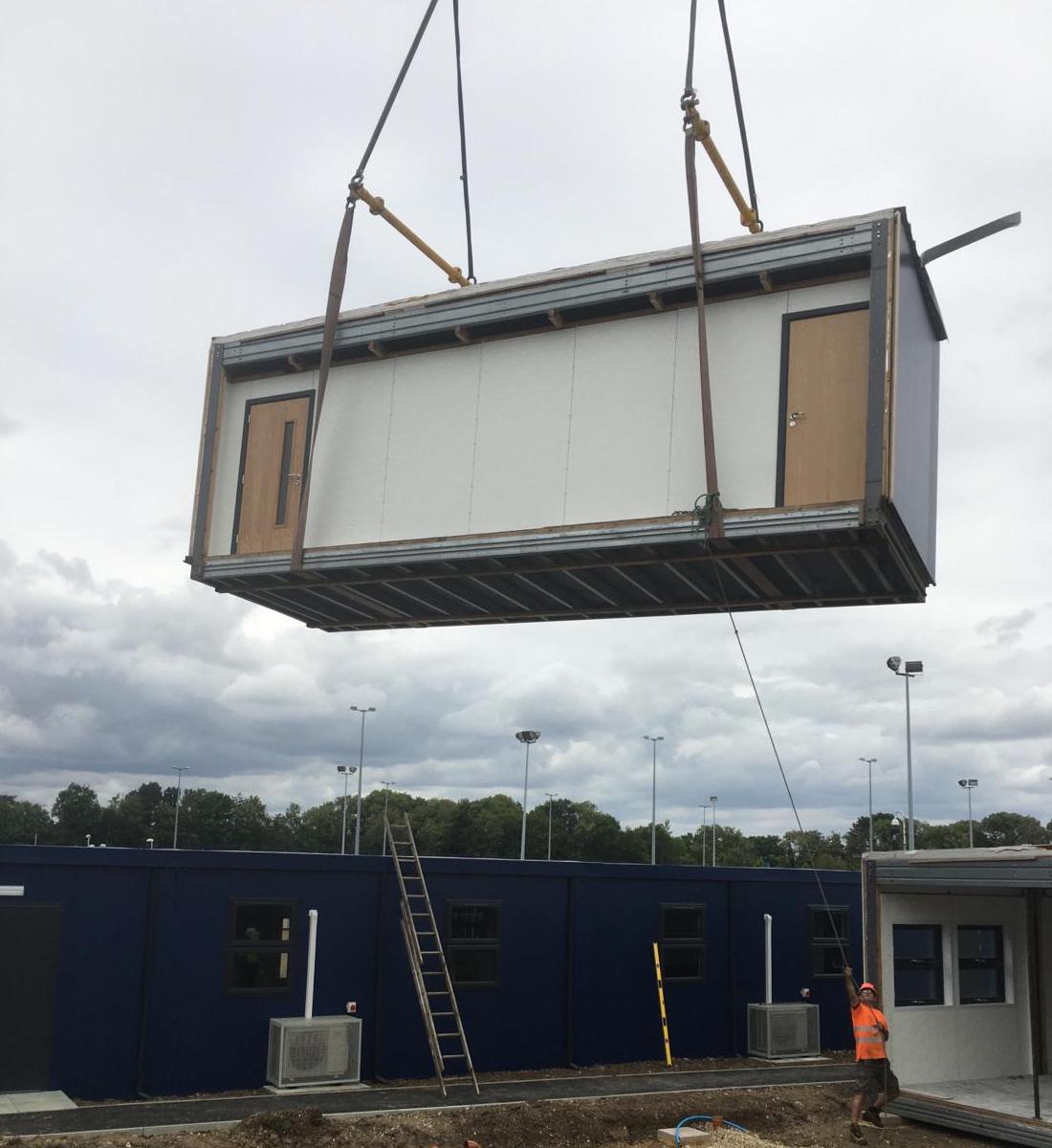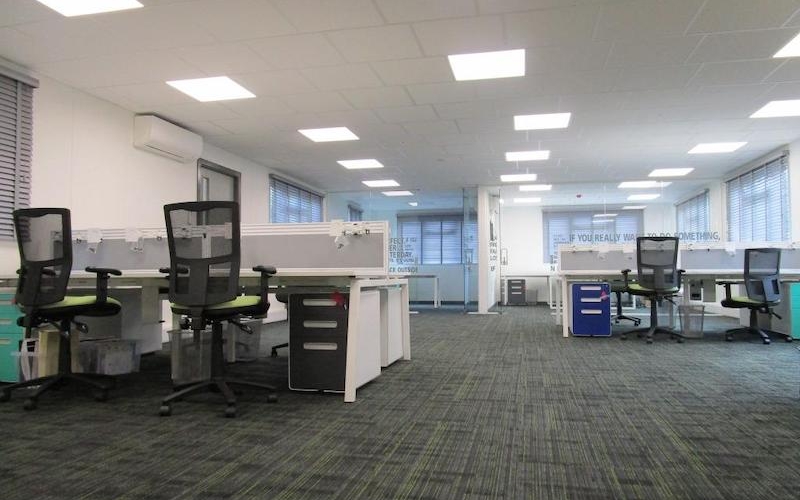04.08.2022• Modular Buildings
Common Questions About Planning Permission for Temporary Buildings

Planning permission has made even the savviest construction worker a little nervous. Now, with the introduction of temporary and portable buildings into everyday construction, people are questioning whether there is a need for planning permission. At PF Modular, we want our clients to be in the know and up to speed with the ins and outs of modular construction so that they can make an informed choice that works best for them and their projects.
Do portable buildings need planning permission?
Portable buildings require planning permission just like any other building that will be in place over 28 days, with a surface area larger than 100m2. Therefore, it is good to have a basic idea of what requirements will allow you to have and not need planning permission. Some of the specifications which would enable you not to need planning permission are:
- When the portable building is an extension of existing construction, you may be able to avoid planning permission.
- If the portable building is shorter than the existing building
- If the portable building is directly related to the purpose of the original building
- The portable buildings are less than 25% of the original in volume.
- However, it is more likely that you will need planning permission for your portable building, and it is always best to assume you will need it to avoid penalties. You should be aware that the following specifications will require you to have planning permission for your portable building:
- How do the materials affect the external appearance of the building
- The portable building exceeds 25% of the total area or 25% more than the original building.
- The portable building is close to 5m to the site boundary.
- If the land is significantly reduced due to the portable structure, reducing the availability for parking and vehicle manoeuvring.
Thanks to most portable building manufacturers providing a complete turnkey service, you shouldn’t need to worry about the application for planning permission as they will sort this for you. In addition, they can ensure there are no issues with local authorities regarding your portable building project. However, you will likely need to agree to the project with the manufacturer before they can submit it for approval. Remember, planning permission takes time and often causes delays in the construction industry, from eight to twelve weeks.
Many businesses choose to go ahead with their project without planning permission as it is possible to receive retrospective planning permission – but only if you can prove your portable building had an emergency or urgent need. Most genuine cases will get approved by the local authorities without any issues. However, suppose you decide to take this route and do not get approved. In that case, you must abandon your project and return the site to its original condition, resulting in a significant loss of time and investment.
If you feel you still want to go ahead with the planning permission application and do not have a company covering the service for you, then you will need to supply the following documents:
- Five copies of your application forms
- Location Plan, Site Plan, Block Pan
- Signed Ownership Certificates
- Agriculture Holdings Certificate
- Design and Access Statement
- The correct application fee

What is a temporary structure in planning terms?
A portable building is sometimes referred to as a temporary building. These terms are both used somewhat interchangeably. However, temporary refers to a structure not designed for long-term use and is likely only to serve a short-term purpose, such as toilets at a festival.
A portable building could be the answer you are looking for in your next big project, so be sure to check out the range of portable cabins available at PF Modular.
Planning permission is often a feared concept to those diving into the construction industry or a project for the first time. It is a daunting task for the inexperienced, with many implications and potential pitfalls if not done correctly. However, we know how important it is to keep a project on track, so consider a complete turnkey service when browsing portable building suppliers. Not only will it significantly reduce your stress, but it will also ensure the project is done to a high standard and completed correctly, in line with local authority regulations.
We hope you have taken on some of the information about planning permission for portable buildings with this article and that it now seems less daunting. If you would like to speak to anyone regarding planning permission for portable buildings, please get in touch, and one of our experienced members will be happy to assist you.
Related Posts

15.07.2024• Cabins, Posts & News
Safety Standards and Best Practices for Portable Office Setups
As businesses grow and the need for versatile workspaces grows, portable cabins offer a flexible, cost-effective solution. Whether businesses need temporary offices or long-term...
Continue Reading
15.07.2024• Posts & News
How Modular Buildings Are Supporting Sustainable Practices in Education
Over the last few years, sustainability has grown from a buzzword to an essential imperative across various sectors, including education. As educators and project...
Continue Reading
14.06.2024• Posts & News
Easily Adapt Your Business Space with a Modular Office
Adaptability and efficiency are essential for businesses wanting to keep up with their competitors. Project managers and business owners are constantly seeking innovative solutions...
Continue Reading